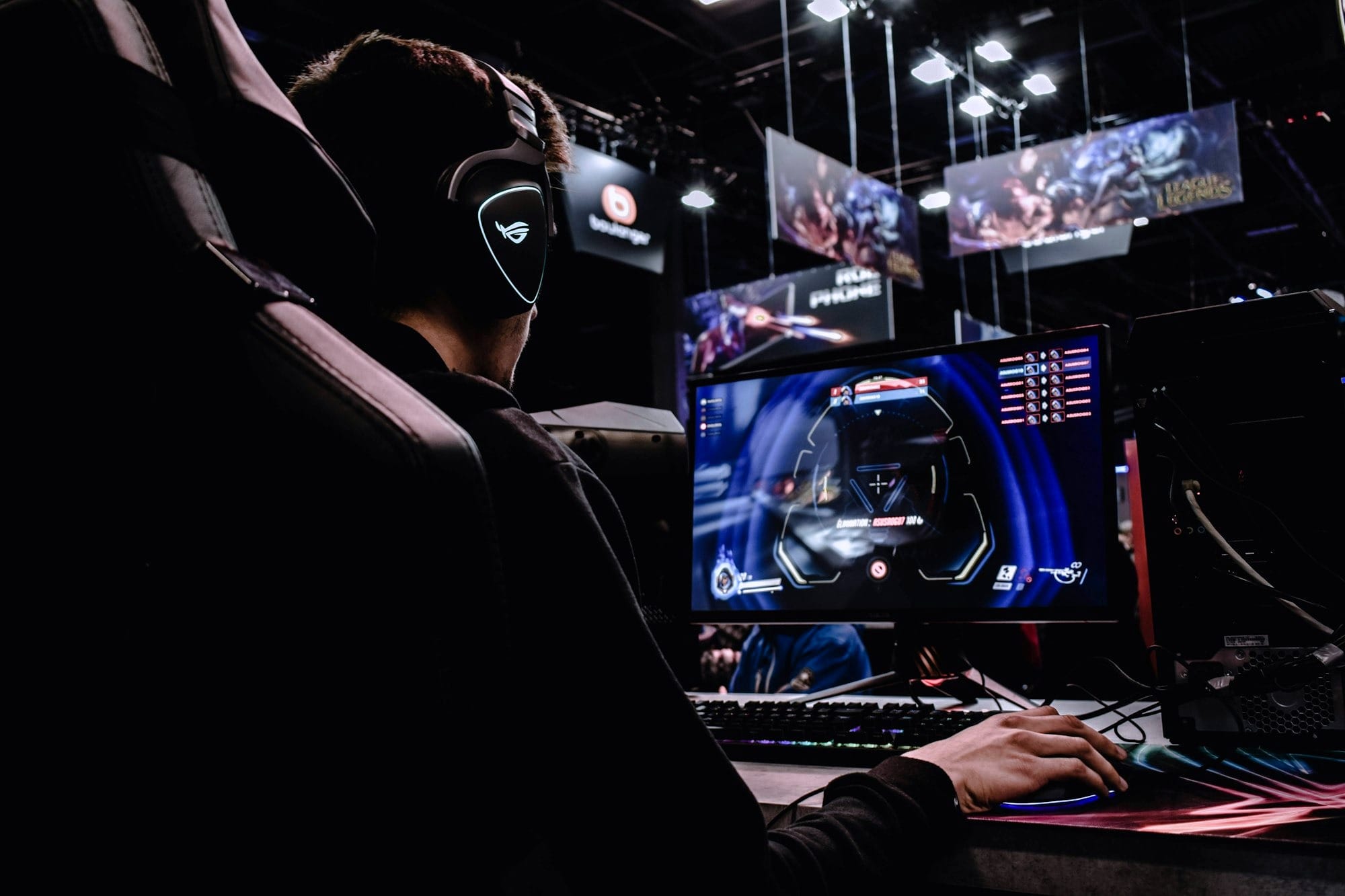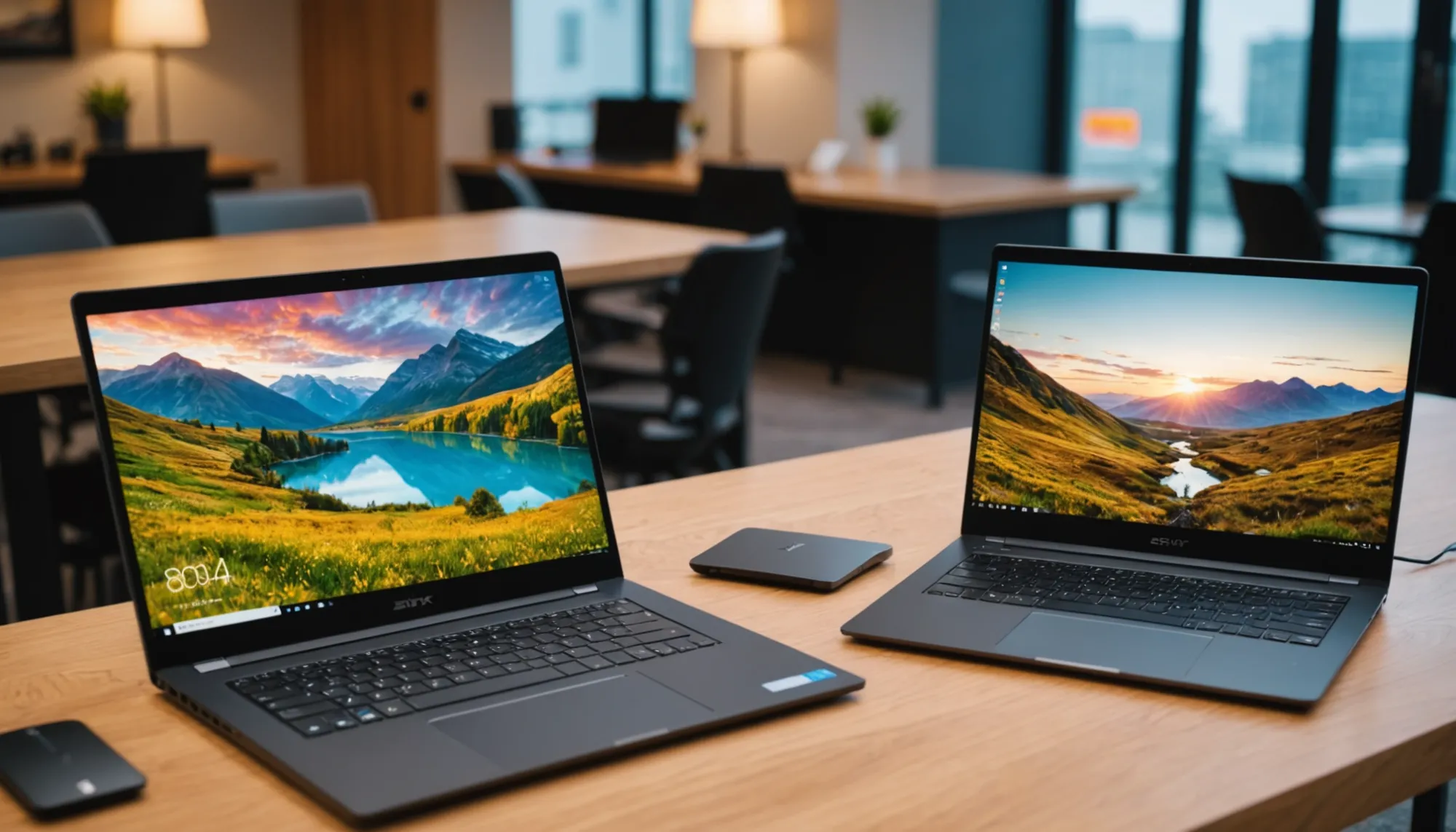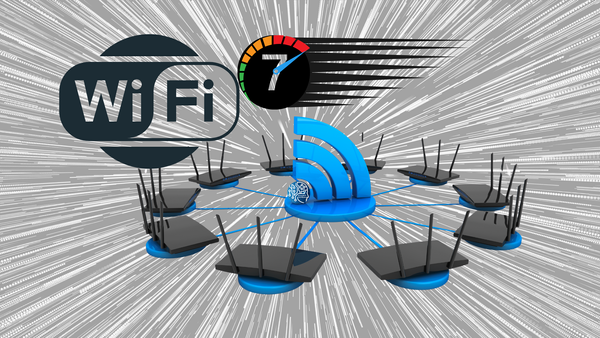What's the Best Bang for Your Buck? Tips for Buying a New Computer or Laptop in 2024

In today’s ever-changing world of tech, having the right computer or laptop is more crucial than ever. Whether you're a student navigating online classes, a gamer diving into the latest releases, or someone managing day-to-day tasks like work or browsing, your device can make a huge difference. As technology changes at lightning speed, knowing where to start when you're shopping for a new device in 2024 is vital. So, with holiday deals in full swing, get ready as we break down some practical tips to help you get the best value for your money this holiday season!
Understand Your Needs
The journey to finding the right computer starts by identifying your specific needs. Ask yourself: Are you a gamer who needs superior graphical processing for games like Call of Duty or Fortnite? Maybe you are you a student requiring a dependable machine primarily for online research and word processing? Or maybe you are just a casual user who browses the Internet, sends personal email and watches the odd movie?
With the holidays on our doorstep, the deals are plentiful and enticing but, before heading out to the store or browsing online, jot down a list of your must-have features. For example, if you're a graphic designer or gamer, you may need a powerful CPU and dedicated graphics card with lots of available memory. Ensuring you know what your needs are can help you avoid falling for features that won’t benefit you, saving both time and money, and helps you shop more effectively, ensuring that your new device meets your practical needs.

Set a Budget
Setting a budget is a key part of the purchasing process. Computers and laptops span a wide range of prices, from affordable options under $500 to premium devices that can exceed well over $2,000.
Before you start shopping, firmly decide on your budget. It's easy to be tempted by fancy models with shiny features, but staying within your financial limits is essential for your overall financial health.
Consider allocating an additional 10 to 20 percent beyond your budget for unexpected costs, like necessary software or accessories. If you plan to buy a laptop for teaching or heavy mobile use, investing in a device with a strong battery lasting 10 hours may be well worth the extra cost.
Know The Specifications
With your needs outlined and a budget firmly established, it's time to dive into the specifics of what to look for in a computer. For beginners, this can be a challenge so, here are some crucial components to know that will make all the difference in your computing power and capabilities:
Processor (CPU): This is the core, or brain if you will, of your machine's performance. For average users, an Intel i5 or AMD Ryzen 5 will suffice. If you are into gaming or running intensive applications, aim for an Intel i7 or Ryzen 7.
Memory (RAM): This is something that many overlook. Having ample memory for your current and future needs is key. As technology changes so quickly, so do the requirements for running many different types of software - even your Internet browser! In my professional opinion, this is more essential than extra processing power. Having ample RAM lets your processor make quick work of needed tasks. Many will tell you to have a minimum of at least 8GB of RAM, which works these days for the most simplest tasks. However, I always recommend at least 12GB of RAM with today's power hungry software. The more, the better. This amount will also allow you grow if your needs become a bit more demanding. If you plan to edit videos or run multiple applications simultaneously (which many of us do regularly), or are looking into gaming, go for 16GB or more. Really, for gaming 16GB is minimum here. Adjust your budget if needed to ensure it allows for an ample amount of RAM.
Storage: Choose SSDs (Solid State Drives) over HDDs (Hard Disk Drives) for quicker load times and better overall performance. A minimum of 256GB SSD storage is advisable if you’re using it for everyday tasks. These days, the standard size that comes on most pre-built laptops is 1TB which is more than fine especially if you are utilizing cloud storage (like Google Drive, MS OneDrive, Dropbox etc.). If you are looking at installing a fair amount of software, storing many local video files or gaming, you want to go bigger for sufficient space. Many offer additional internal drive configurations, which can eat up your budget quickly, so look at alternatives like external, portable SSD drives as well.
Graphics Card: For the average user, you do not need anything crazy here. Most pre-built configurations for low budget will handle your needs well. However, if your hobbies include gaming or graphic design, this is where you definitely have to seek out dedicated graphics cards like those from NVIDIA or AMD. This feature significantly enhances your visual experience with no lag refresh rates, multiple monitors and ultra high resolution. Also, just like having ample RAM for your computing needs, dedicated graphic cards have their own RAM. Ample RAM for your video display needs is essential so if you are looking at graphic intense use, ensure you get a good dedicated video card with lots of memory. Keep in mind however, that dedicated graphics will blow your budget out of the water pretty quickly so, don't go too crazy here, if your video demands are not too high, stay near entry level dedicated cards.
Understanding these specifications might seem daunting initially, but by familiarizing yourself, you will make informed choices that will benefit you for years to come.

Operating System Matters
Picking the right operating system (OS) is pivotal for your device's performance and compatibility with your favourite software.
Windows: Offers tremendous versatility, suitable for gamers and professionals alike. Studies show that 76% of personal computers run on Windows.
macOS: Ideal for creative professionals, macOS excels with programs like Final Cut Pro or Logic Pro. Apple boasts a loyal customer base, with retention rates around 90%. Entry price points are higher here but the hardware is of exceptional quality. If you are looking into gaming however, Windows is your best option.
Chrome OS: A lightweight option mainly for tasks conducted online, such as browsing and document editing, making it excellent for students or casual users who demand to be lightweight and mobile.
Linux OS: Believe it or not, Linux is one of the most popular OS's on the planet. It has come a long way from it's command line interface and considered a "tech expert's" OS. It is now highly user friendly, just like Windows and macOS, and is considered the most reliable computer ecosystem on the planet. And, it's Open Source and entirely free! It's definitely an OS to take into serious consideration.
Each of these operating systems comes with its own features. By understanding them, you'll avoid installations that don’t work for your needs, saving time and frustration.
Portability vs Performance
When choosing a laptop, consider how often you'll carry it around. While gaming laptops often offer powerful performance, they can be considerably bulkier. A lightweight ultrabook, on the other hand, allows for easy transport but may sacrifice some processing power.
Also, battery life is a key aspect, especially for users who need to work on the move. A laptop that lasts 8 to 12 hours on a single charge can be invaluable for students attending back-to-back classes or professionals working outside the office.

Reviews and Research
Before finalizing your purchase, it's wise to research. Look for reviews on the models you are considering. Tech review websites and platforms like YouTube can offer insights into the pros and cons of each device.
Focus on user feedback regarding performance, build quality, and customer support. It’s not uncommon for a seemingly great deal to mask underlying issues, and comprehensive reviews can help you find reliable options that save you from future headaches.
Check for Warranty and Support
Before sealing the deal, examine the warranty and customer support options provided. A strong warranty can relieve worries about potential issues that arise after purchasing. Some brands offer extended warranty options that might be worth considering if you're investing in a high-end model. You are investing a fair bit of money into this device so protecting it with an extended warranty is highly recommended. Keep this in mind when setting your budget.
Be sure to check the company's reputation for customer service as well. Efficient and responsive support can make troubleshooting much easier if problems occur.
Explore Deals and Discounts
Strategizing your purchase timing can maximize savings. Watch for sales events, back-to-school promotions, and holiday discounts which often yield substantial reductions on computers and laptops.
Consider refurbished devices as well. Many certified refurbished models come with warranties and can cost 20 to 50 percent less than new options. This approach can allow you to buy higher-end models while staying within your budget.

Future-proofing and Upgradability
As technology rapidly changes, what is cutting edge today may not hold up in just a few years. Seek out devices that allow for easy upgrades in terms of RAM or storage. This flexibility can extend your machine’s lifespan considerably.
Also, keep an eye out for features that support newer technologies, like USB-C ports or WiFi 6. By doing this, you’ll ensure your device stays relevant as technology evolves.
Smart Shopping for Tomorrow
While trying to stay on top of today's technology trends can seem to be a daunting task, purchasing a new computer or laptop in 2024 can be a straightforward experience with careful planning. By understanding your needs, laying out a budget, knowing key specifications, and conducting thorough research, you'll be well-equipped to find a device that aligns perfectly with your lifestyle and work requirements.
This is a big investment so taking the time to educate yourself about your options can save you from making a choice you might regret later. Remember, the goal is not just finding the cheapest option; it’s about striking the right balance of performance, features, and cost and, most importantly, satisfying your specific needs.
If you have any questions regarding specifics, specifications or recommendations don't hesitate to reach out to me. Let me know in the comments how your research landed you a solid performing device. It will help others too!
Happy shopping!





